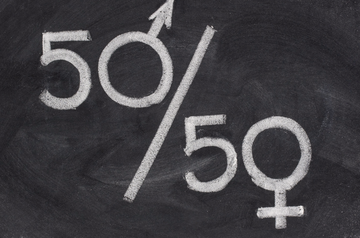Feminism And Women's Right To More From Life
Last updated
10 Nov 2016 . 5 min read

“You’ve come a long way baby” The tagline of the cigarette campaign was tied to a cultural shift in the way women were portrayed - independent, liberated, emancipated and was linked to the themes of feminism and women’s liberation. This brings us to the question of everything that has piggybacked on the ‘Feminist Movement’ as we know it. What began as a struggle against oppression and denial of rights and greater autonomy for women, has frequently been hijacked as a marketing strategy, used for political expediency and developed into a caricature of a “social cause” to work for.
What is the feminist movement?

Women's movements are among the most global of modern social movements and have driven international and national action on gender equality. The goals and structures of women's movements reflect the commonalities as well as the differences among women. The Feminist Movement (also known as the Women’s Liberation movement) refers to the campaigns for reforms on issues of reproductive rights, domestic violence, maternity leave, equal pay, women’s suffrage, sexual harassment and sexual violence. It was played out by strong women calling out gender injustice and striving to achieve equality. The first wave was led by the Suffragettes who campaigned for political equality and the right to vote. Second wave feminism in the 60s and 70s were more combative towards social and cultural inequalities and saw a lot of reactions towards the “symbols of oppression” - bras, make up and high heels, the right to drink in public, reclaim the night marches and the women’s strike for equality. Third wave feminism, as we know it today is continuing to address the financial, social and cultural inequalities and includes renewed campaigning for greater influence of women in politics and media campaigns on violence against women and breaking restrictive cultural and social conceptions. Sporadic campaigns around the world continue to set benchmarks for all, as women reclaim their voices, rights and bodies - Greenham Peace camp , Nirbhaya case in India , Ni Una Menos in Argentina, Black Monday , Poland , Icelandic Women's day off.
How it fits in India

Feminist movements here tend to be associated with the aspirations and opportunities of middle-class women. Our religiously diverse, multilingual and caste divided country has vibrant and multi tiered women’s movements. Social tragedies have led to campaigns resulting in new laws: the Mathura rape case, the dowry-related death of Tarvinder Kaur, the Roop Kanwar and Bhanwari Devi case. One of the priorities is challenging patriarchal practices. Mindsets need to change at every level, and the inherited prejudices constantly challenged. Another is alleviating the poverty and insecurity of women and their families. There are groups working with grassroots labor, peasant and tribal groups promoting sustainable development which addresses both the economic independence of women and the long term security and well being of the whole community, as exemplified by SEWA.
MORE FROM LIFE
For women, what matters most is issues of immediate critical urgency – violence, equal wages and a life with dignity. If the stakes are much higher – whether they can go to work or not – then the sense of immediacy is much higher. Gender inequality in employment and pay can be addressed through policy and legislation but the real need of the hour is for action that brings to women, a better bandwidth of choices which lead to greater financial freedom and with it a stronger presence and a louder voice within the social fabric. When a woman from Dhulia in Maharashtra writes in to say that she has been able to access more choices for a better life, it is a form of liberation. These choices can range from second chance education, to flexible work options that allow women to carry out their natural childbearing and rearing functions without feeling compromised and the chance to return to work with dignity. Institution, organizations and institutions that promote and collaborate to enable this change are bringing the cultural and social shift that leads to greater freedom and autonomy.
Ultimately feminism is about a woman’s right to expect and receive more from life. In terms of advice, options, resources and quality of life.

Monica Majithia
Share the Article :
Similar Articles You love














